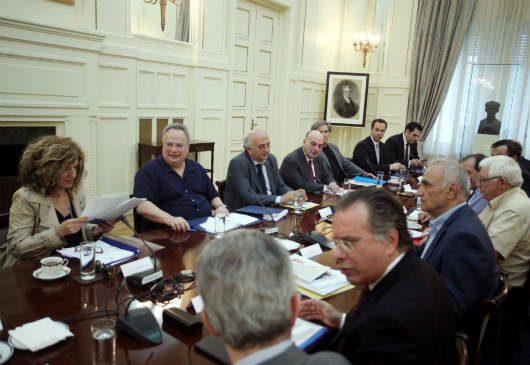 N. KOTZIAS: The National Council on Foreign Policy met today, in a special meeting on the Balkans. I briefed the parties on the meetings and agreements I had and made on my trip to seven of the eight Balkan countries. Greece is returning to the Balkans, and our policy, as I explained, has two elements. The one element is to support our cooperation with each country and its course towards the European Union. The second is to again find a way to create an internal Balkan space, for the Balkan periphery to be remade – a development that will facilitate the future place of all of these states in the European Union itself.
N. KOTZIAS: The National Council on Foreign Policy met today, in a special meeting on the Balkans. I briefed the parties on the meetings and agreements I had and made on my trip to seven of the eight Balkan countries. Greece is returning to the Balkans, and our policy, as I explained, has two elements. The one element is to support our cooperation with each country and its course towards the European Union. The second is to again find a way to create an internal Balkan space, for the Balkan periphery to be remade – a development that will facilitate the future place of all of these states in the European Union itself.
With responsibility on all sides, we talked about our policy on FYROM, Albania and Kosovo, and also on Serbia, Bosnia-Herzegovina and Montenegro. I also briefed them on our good strategic relations with Bulgaria. I think it became clear to everyone during the discussion that we are continuing a policy on Kosovo that was decided on in the past, that is based on the 2012 agreement on the creation of an Office in Greece; that is, an agreement that is not – as was incorrectly said – our choice. It is a policy that continues the support of the European courses of these countries; a policy decided upon in Thessaloniki, in 2003, and in the years from 2010-2013, with the Association Agreements most of these countries concluded with the European Union.
We also highlighted the fact that Greece, despite its weaknesses in the economic sector, remains the country with the greatest potential in the Balkans; the country that has the cultural, political and historical capability, the expertise and experience from the European Union, to contribute to a better tomorrow for all of the Balkan states.
Thank you very much.
July 22, 2015


